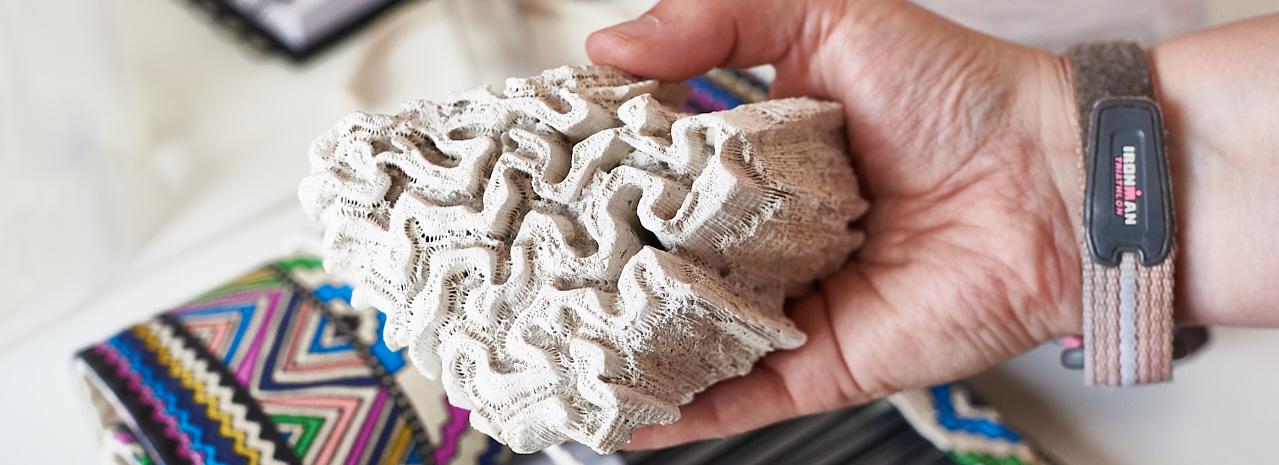The second series of East Midlands CHWA Gatherings took place on the 28 and 30 July via Zoom, hosted by Rachel Howfield Massey and Laura Phillips, CHWA Regional Champions for the East Midlands. The focus of the session was framed by a question that was selected by members.
Have we found ways to create intimacy at a distance, particularly in relation to digital poverty?
In response to feedback from our last session and to create space to amplify practice from across the region, we invited Dr Gemma Collard- Stokes, an independent dance artist, specialising in eco-somatic movement practices and a therapeutic arts researcher at the University of Derby, to present a provocation responding to this question and to consider the crisis of touch experienced by many in response to the Covid-19 pandemic
Touch is an innate yearning in social creatures. To touch and be touched, rewards us, soothes us, instils confidence, consoles us, teaches us empathy, gives us hope and brings us together. So much of our developmental process relies on touch and we know from research with primates and the stories of young children left to self soothe in orphanages, that life without the closeness of others has a detrimental effect. With touch and closeness such key factors to feelings of wellness, resilience and inclusion in community arts initiatives, how can the arts for health sector overcome this rapidly unfolding crisis of touch?
At each session, Gemma shared her thoughts on how nature connection holds opportunities to adjust and respond to the withdrawal of human touch from our lives via the medium of an evocative dance film, called Touch.
The film stimulated much discussion within the groups, with practitioners sharing their ideas about touch, and the different ways organisations were ‘touching’ their audiences and participants. The gift of a letter, impressed with DNA and the action of someone putting pen to paper with you in mind, the intimacy of a phone call, hearing the tones of another. The rise of craft and textile works, with people connecting with embroidery, the needle and the textures of fabric. The connection with animals and nature, sensing the ground, finding your patch and feeling the elements through the skin…
Practitioners from Opus Music discussed how they had been researching the vagus nerve and exploring how they could enable staff and patients to feel safe and reassured through music, voice and body work. Karla Jones, dance practitioner and co-producer at Hubbub Theatre shared how the online sessions were programmed with more time for self-soothing touch and body work exercises than a “normal” session, as she recognised that her participants, many shielding, would be starved of touch and contact. This hinted at a shift from the initial push to provide creative activities to leading with the experiential and finding ways to enable people to self-care and self-soothe through the mechanisms of creative practice.
We also heard from members about the challenges and emotions that come with the adjustment and loss of practice and ways of working. In Museums, the removal of object handling was described as feeling ‘hurtful’, as a shift to this practice had been fundamental in the revolution of how people interact and emotionally connect with museums and their personal histories.
There was also a hopeful sense that this was a moment to galvanise and capitalise on the awareness and interest in creativity/culture for health to drive more investment in the sector. One participant shared how interest in their online activity had quadrupled. However, the complex task for evaluating the impact of socially distanced practice (online/offline) was identified as an increasingly difficult task and many felt unsure how to best articulate and capture this evidence to really make the case.
The second half for the meetings echoed the first set of gatherings with participants sharing their hopes for what the regional CHWA network and steering group could be. Creating a space for shared learning, resources and self-care was high on the list, alongside the possibilities of meeting virtually and occasionally, physically in nature across the region.
More about Dr Gemma Collard-Stokes:
Dr Gemma Collard-Stokes is a dance artist, educator and a researcher of therapeutic arts at the University of Derby. Her artistic enquiry explores social interaction and the social history of place through a combination of environmentally responsive dance, creative writing, physical theatre and [eco]somatic movement practices. Her academic interest focuses on the function of dance as a route to prevention, management and treatment of conditions affecting physical, mental health and wellbeing.

